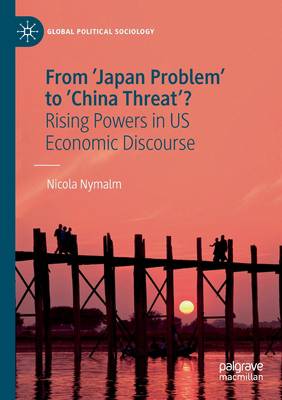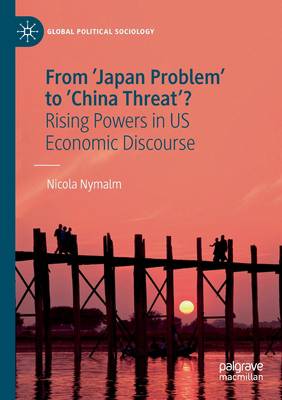
- Retrait gratuit dans votre magasin Club
- 7.000.000 titres dans notre catalogue
- Payer en toute sécurité
- Toujours un magasin près de chez vous
- Retrait gratuit dans votre magasin Club
- 7.000.0000 titres dans notre catalogue
- Payer en toute sécurité
- Toujours un magasin près de chez vous
Description
This book has four main objectives: to bring the thus far almost entirely neglected historical case of 'the rise of Japan' into the literature on power shifts in general and 'the rise of China' in particular; to propose a discourse-based conceptualization of identity for the study of economic policy that engages theoretical and methodological debates on how to overcome the dichotomy between 'ideational' (identity) and 'material' (economic) factors; to address the tendency to focus on the 'radical Other' in poststructuralist IR scholarship, by highlighting how heterogeneity disturbs exclusive and binary articulations of identity and difference; and to propose a method for putting political discourse theory (PDT) into practice in empirical research by drawing on rhetorical political analysis (RPA). US congressional debates on economic policy on Japan and China in 1985-2008 are analysed as examples of official US elite public discourse. The book shows that the 'new era' in US-Chinese relations that scholars and policymakers have been announcing since the beginning of the Trump presidency was long in the making, as it rests on longstanding discourses on the USA's main economic competitor.
Spécifications
Parties prenantes
- Auteur(s) :
- Editeur:
Contenu
- Nombre de pages :
- 244
- Langue:
- Anglais
- Collection :
Caractéristiques
- EAN:
- 9783030449537
- Date de parution :
- 17-07-21
- Format:
- Livre broché
- Format numérique:
- Trade paperback (VS)
- Dimensions :
- 148 mm x 210 mm
- Poids :
- 312 g

Les avis
Nous publions uniquement les avis qui respectent les conditions requises. Consultez nos conditions pour les avis.






